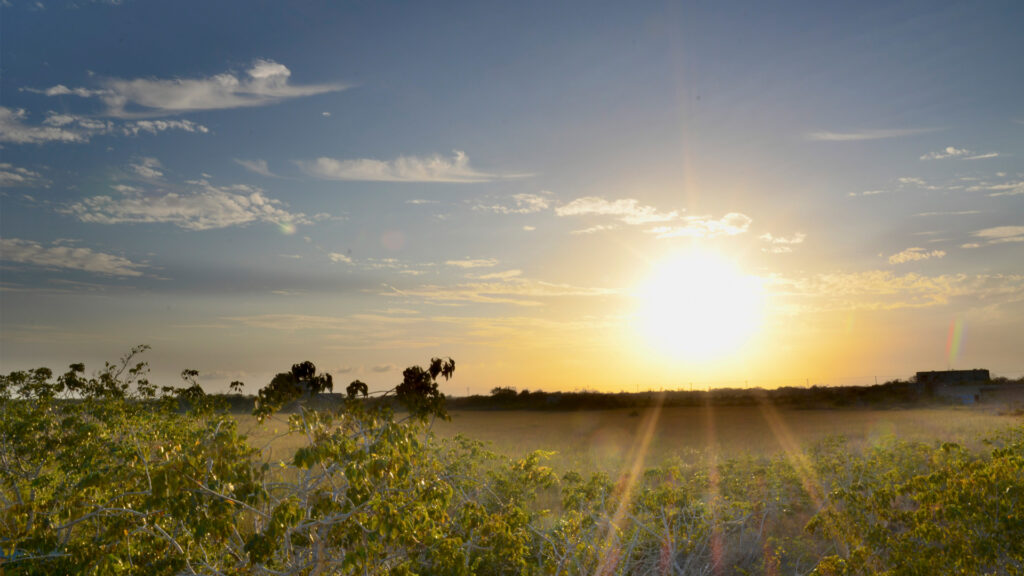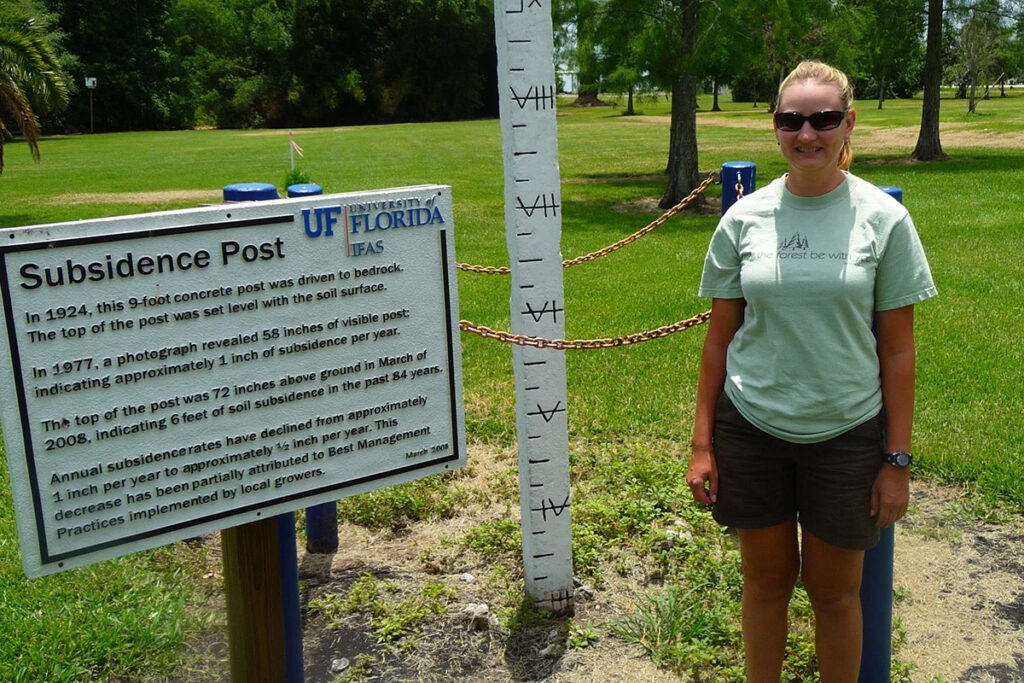By Robert Wells, University of Central Florida News
A new project from the University of Central Florida is looking to the soils for a way to cool the skies.
Funded by a nearly $750,000 grant from the USDA National Institute of Food and Agriculture, the research will examine a method to keep carbon from escaping soils and becoming the greenhouse gas carbon dioxide. As carbon dioxide accumulates in the atmosphere, it warms the Earth by trapping heat.
The research is important as NASA has reported that the Earth has seen some of the hottest temperatures on record this summer.

“When we talk about climate change, a lot of people have the misperception that most of the Earth’s carbon is stored in the atmosphere,” says Lisa Chambers, the project’s principal investigator and an associate professor in UCF’s Department of Biology. “But the atmospheric carbon pool is actually quite small, relative to the pool of carbon in the soil.”
The research will focus on histosols, or organic rich soils, in the Everglades Agricultural Area located south of Lake Okeechobee in Florida.
Histosols comprise only about 1.3% of Earth’s land surface, but store approximately 23% of its carbon. The nutrient-rich soils are perfect for agriculture, but their drainage and cultivation lead to increased carbon dioxide in the atmosphere.
The research team, which includes Jehangir Bhadha with the University of Florida and Jing Hu with Mississippi State University, will examine adding fine minerals — such as silt and clays — to the histosols to prevent carbon from escaping.
Research has found that mineral-associated organic matter releases less carbon into the atmosphere because it is less susceptible to decomposition by microbes.
“It’s been shown through carbon-14 dating that the carbon that’s associated with these fine silts and clays has remained in the soil the longest,” Chambers says. “Whereas unassociated, loose organic matter only dates back tens to hundreds of years old and is easily decomposed by microbes into CO2, the mineral-associated organic matter has been aged to be millennia.”

She says the Everglades Agricultural Area is the perfect place to perform the research because not only could the work help with climate change, but it could also improve agricultural production and sustainability in the area.
Soil subsidence due to decomposing histosols has become a major problem in the Everglades Agricultural Area, where in some locations soil elevation has dropped as much as six feet over the past 100 years.
“The soil has been so unprotected and oxidizing so fast, that there are places where the soils are almost completely gone, turned back into carbon dioxide in the atmosphere, and they’re almost down to bedrock,” she says. “So, it’s kind of a precarious situation.”
The four-year project will involve surveying the current status of mineral-associated organic matter in the area, lab experiments to determine the best soil formulations and field-scale trials. Although the project will focus on South Florida, the findings could have applications in other areas where histosols have been drained for agricultural production.
Chambers received her doctoral degree in wetland biogeochemistry from the University of Florida and joined the Department of Biology in UCF’s College of Sciences in 2015. She is the principal investigator of the Aquatic Biogeochemistry Laboratory and is also a member of UCF’s National Center for Integrated Coastal Research.
This piece was originally published at https://www.ucf.edu/news/new-ucf-project-examines-key-role-soils-play-in-keeping-the-planet-cool/
Sign up for The Invading Sea newsletter by visiting here. If you are interested in submitting an opinion piece to The Invading Sea, email Editor Nathan Crabbe at nc*****@*au.edu.



